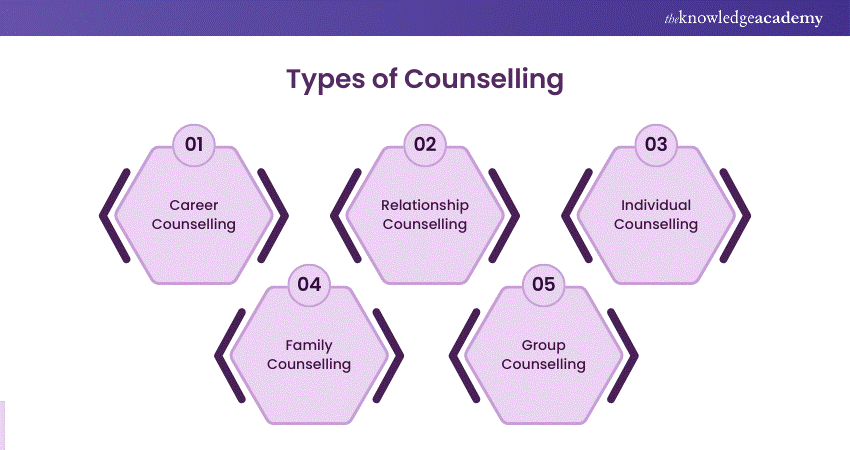Checking out the Advantages of Virtual Therapy in Modern Mental Health Care
The rise of virtual therapy notes a substantial shift in mental healthcare. It uses improved accessibility, permitting people from varied histories to seek aid without geographical restraints. Versatility in organizing accommodates differing way of lives, while the comfort of home can cultivate visibility. The effects of these changes prolong beyond mere convenience. The evolving landscape of therapy elevates crucial inquiries about its long-term impacts on client interaction and therapy results.
Enhanced Accessibility for All
Although typical therapy commonly presents barriers such as geographical location and scheduling problems, virtual therapy significantly boosts access for individuals looking for mental wellness support. By removing the demand for physical travel, virtual therapy permits customers from remote areas or those with mobility difficulties to connect with qualified specialists. This mode of therapy can reach underserved populaces who may do not have neighborhood mental health resources, therefore addressing disparities in access to care. In addition, virtual systems can deal with diverse needs, using services in several languages and suiting numerous cultural histories. Clients can involve with a more comprehensive range of experts, giving them with alternatives that align with their details requirements and preferences. This raised availability cultivates a much more comprehensive setting, enabling people to seek help without the preconception typically related to in-person gos to. On the whole, virtual therapy stands for a significant development in making mental health and wellness treatment a lot more available to all.
Adaptability in Organizing Procedure

As virtual therapy remains to get grip, its fundamental flexibility in organizing sessions proves to be a considerable benefit for many people. Unlike conventional in-person therapy, virtual therapy enables clients to pick session times that finest fit their personal and expert dedications. This flexibility fits those with requiring work timetables, household commitments, or various other commitments that can make participating in physical consultations testing.
Additionally, customers can easily reschedule or readjust their sessions as needed, minimizing the stress and anxiety associated with rigid consultation systems. The schedule of various time slots throughout the week, consisting of evenings and weekends, even more boosts availability. This adaptability not only urges uniformity present however additionally fosters a higher dedication to the healing procedure. Inevitably, the adaptability in organizing sessions represents a transformative shift in psychological healthcare, empowering people to prioritize their wellness without sacrificing various other elements of their lives.
Convenience of a Familiar Setting
The convenience of an acquainted atmosphere substantially improves the effectiveness of virtual therapy for many customers. Participating in therapy from the safety of their own homes allows individuals to feel more at simplicity, minimizing anxiousness that might come with typical in-person sessions. This familiarity can assist in open communication, making it possible for customers to express their thoughts and feelings a lot more freely.
The visibility of individual products and the capability to regulate their environments can add to a feeling of protection and leisure. Customers often report that being in a comfy room enables them to concentrate extra on the healing process as opposed to the establishing itself.
Furthermore, the informal nature of virtual sessions can help liquify obstacles that may exist in a conventional workplace setting, cultivating a much deeper link with therapists. Overall, the convenience of acquainted environments plays a crucial duty in enhancing the healing experience and efficiency for numerous individuals seeking psychological health and wellness support.
Wider Series Of Restorative Choices
A larger series of restorative options appears through virtual therapy, allowing clients to gain access to various techniques that may not be feasible in traditional setups. This flexibility enables people to check out varied strategies such as cognitive-behavioral therapy, mindfulness methods, art therapy, and also specialized treatments like trauma-informed treatment or dialectical habits therapy.
Clients can pick from a more comprehensive spectrum of therapists, consisting of those that specialize in particular niche locations or certain populations, improving the possibility of discovering a suitable match. Virtual platforms often supply access to group therapy sessions, assistance communities, and workshops that may be geographically not available or else.
This variety equips customers to take part in their healing procedure according to their distinct choices and demands, potentially raising inspiration and dedication to treatment. Because of this, the landscape of psychological health care comes to be more inclusive and adaptable, satisfying a larger range of individual experiences and challenges.
Minimized Stigma Bordering Therapy
Accessing therapy via virtual systems adds to a significant decrease in the preconception commonly linked with psychological healthcare. By giving a very discreet and personal setting, virtual therapy allows people to look for assistance without the concern of being evaluated or identified. This anonymity attract those who might or else wait to go after in-person therapy because of social perceptions surrounding psychological health.
As the occurrence of virtual therapy rises, it normalizes the conversation around psychological health, making it a more acceptable component of daily life. People usually really feel more comfortable reviewing their experiences online, promoting openness and lowering feelings of seclusion. The ease of access of these services additionally motivates a more comprehensive market to involve with mental health and wellness sources, fostering a culture of assistance as opposed to pity. Eventually, the rise of virtual therapy plays a vital function in improving attitudes in the direction of looking for assistance, adding to a much more accepting society concerning psychological wellness challenges.
Cost-Effectiveness and Price

Lowered Session Expenses
Several people seeking psychological health assistance discover that virtual therapy substantially minimizes session expenses compared to traditional in-person options. The removal of travel costs and time off work frequently contributes to overall savings. In addition, several virtual therapists use competitive rates because of reduced overhanging prices related to keeping a physical workplace. This shift in expenditure enables customers to access high quality psychological health services without the financial pressure that might feature traditional therapy. For numerous, this cost allows extra regular sessions, which can improve treatment outcomes. Consequently, virtual therapy not just democratizes access to psychological healthcare but likewise offers a sustainable financial design that straightens with customers' spending plans, making psychological wellness assistance more achievable for a bigger target market.
Broadened Gain Access To Choices
While typical therapy usually provides logistical barriers, virtual therapy greatly expands accessibility alternatives for people looking for psychological health and wellness care. By eliminating the requirement for traveling and enabling versatile scheduling, virtual therapy accommodates diverse way of livings and dedications. This accessibility is specifically helpful for those in remote areas or with wheelchair obstacles. Furthermore, the cost-effectiveness of virtual therapy decreases financial strain, making mental wellness solutions a lot more reachable. Many systems use tiered pricing or gliding range fees, advertising price. Insurance provider progressively acknowledge virtual therapy, additional enhancing its economic availability. Overall, virtual therapy not just broadens the range of that can receive care yet additionally addresses economic barriers, making mental health and wellness assistance more inclusive and attainable for all.
Enhanced Continuity of Care
Enhanced connection of treatment becomes a significant benefit of virtual therapy in modern psychological health care. This strategy permits patients to maintain constant interaction with their therapists, despite geographical barriers or organizing conflicts. virtual therapy. The versatility of virtual sessions fosters regular check-ins, which are vital for keeping track of progression and adjusting treatment plans as necessary
Additionally, digital wellness records and telehealth platforms assist in seamless info sharing amongst treatment companies. This interconnectedness assures that all specialists associated with a person's care are updated on treatment growths, bring about even more collaborated and reliable treatments.
Individuals commonly experience minimized stress and anxiety and enhanced engagement due to the convenience of accessing therapy from acquainted settings. Such availability enhances adherence to treatment regimens, inevitably enhancing results - relationship therapy. To summarize, virtual therapy not just bridges voids in psychological health and wellness services but also fortifies the connection of treatment, a vital part of effective healing relationships
Frequently Asked Questions
How Does Virtual Therapy Make Certain Discretion and Personal Privacy for Customers?
The existing concern addresses the measures virtual therapy uses to shield customer discretion. Utilizing encrypted platforms, protected logins, and conformity with guidelines like HIPAA, virtual therapy guarantees that sensitive information stays private and hard to reach to unauthorized people.
Can I Switch Therapists Quickly in Virtual Therapy?
Switching over therapists in virtual therapy is generally straightforward. Clients can connect their wish for a modification with the system, allowing for adaptability in finding a much better match without the logistical challenges of in-person appointments.
What Modern technology Do I Required for Virtual Therapy Sessions?
To take part in virtual therapy sessions, an individual normally needs a dependable web link, a computer system or smartphone with a video camera and microphone, and access to a protected video clip conferencing system defined by their specialist.

Are Virtual Therapy Procedure as Effective as In-Person Procedure?
Recent studies indicate that virtual therapy sessions can be just as efficient as in-person sessions, depending upon the person's preferences and situations. Factors such as convenience read more and access might enhance the overall healing experience for some clients.
What Should I Do if I Experience Technical Issues Throughout a Session?
If technological issues emerge throughout a session, one need to comfortably interact the problem to the specialist, attempt to reconnect, or button to a backup approach. Persistence and flexibility are crucial in handling these disruptions.